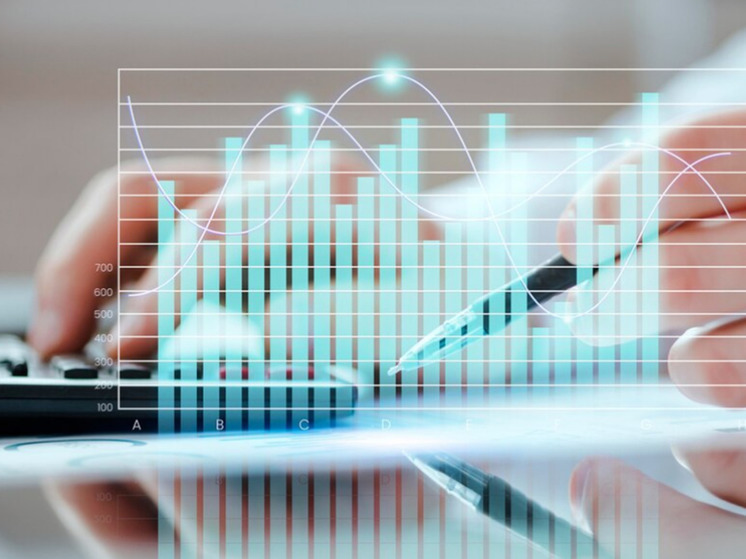Monetary authorities are trying to cope with inflation and cool the lending market
The likelihood of the Bank of Russia raising the key rate at the next meeting of the Board of Directors on June 7 is extremely high. This “scenario will be substantively considered,” said Central Bank Deputy Chairman Alexei Zabotkin. There are more than enough reasons: inflation continues to creep up uncontrollably, consumer lending is breaking demand records, the economy is overheating. However, it is unlikely that the decision on the rate, whatever it may be, will radically affect the macroeconomic situation.

The last time the Central Bank raised rates was in December 2023 — from 15% to 16% per annum, since then it has not changed. For the regulator, this is the main instrument of monetary policy (MCP), which, as Neglinnaya assures, is capable of influencing a number of indicators — inflation, domestic demand, interest rates used in the economy. However, reality largely diverges from the theses of the Central Bank. Thus, in December, annual inflation was 7.42%; today, according to the latest data from Rosstat, — 8.03%. Mortgages in 2024 are expected to grow by 10–15%, the volume of consumer loans — by 8–13%. That is, being in theory a universal means for achieving the current goals of monetary policy, in practice the key rate — at any degree of hardness — does not give the effect that is expected from it.
“Since inflation in Russia is non-monetary in nature, the key rate of the Central Bank does not have a direct impact on it, — says Candidate of Economic Sciences, financial analyst Mikhail Belyaev. — The omnipotence of the bet — This is a myth, a theoretical delusion. In our country, some industries are noticeably monopolized and at the same time the share of small and medium-sized businesses is low. Here, in theory, the Federal Antimonopoly Service should have its say. And a high key rate is counterproductive: it blocks the flow of money into the economy, making loans inaccessible to the majority of companies. There is no direct relationship between the rate and inflation.»
Of course, there is no need to raise the rate, but the Central Bank will certainly do so. The main problem is related to annual inflation, which does not subside and has already exceeded 8%. The pace of retail lending is not slowing down, but it may be affected not by the rate, but by the abolition of preferential mortgages, says Alexey Vedev, director of the Center for Structural Research at RANEPA. According to him, the Central Bank’s decision will also not have any special consequences for the ruble exchange rate: the Russian currency remains weak, otherwise (with a strong ruble) inflation would decline.
“We expect the key rate to remain at 16% per annum as the main scenario,” says economist and communications director at BitRiver Andrei Loboda. – However, with a considerable degree of probability it can be increased by one hundred basis points, to 17%. This will be an unpleasant surprise for borrowers (both corporate and private), but not a very critical step for economic growth in Russia. The consumer price index may well begin to decline, although the process is slow: by the end of the year, inflation is likely to be 5-5.5%.»
As for the ruble, the Central Bank's decision will most likely benefit it. Moreover, Loboda argues that the rule of mandatory sale of foreign currency earnings by exporters will not be abolished until May 2025. In the foreseeable future, the rate will fluctuate in the range of 89-91 per dollar.
One of two things: the rate will either be left at 16% or increased to 17%, says the Markets Money Power analyst. Sergei Ramaninov. Since the economy and inflation are not cooling yet, further tightening of the monetary policy suggests itself. In the expert’s opinion, the regulator can also influence the overheated lending market through macroprudential allowances. That is, he will increase reserve requirements for different categories of loans, although this will hit banks' profits. The fewer loans, the correspondingly less consumption, less imports (a stronger ruble), and, finally, less inflation, Ramaninov builds a logical chain.
«The likelihood of a rate increase is quite high,” notes the head of the department at “ ;Compare» Dmitry Safronov. — Perhaps the Central Bank will decide to take the lead. After all, on July 1, the state will cancel the mass program “Preferential mortgage with state support”, and the targeted “Family mortgage” — modifies. Therefore, in June, before these changes, a surge in issuances is expected. After the key rate is raised, banks will be forced to raise rates on classic housing programs. And this will naturally be followed by a cooling in demand for mortgages.”

